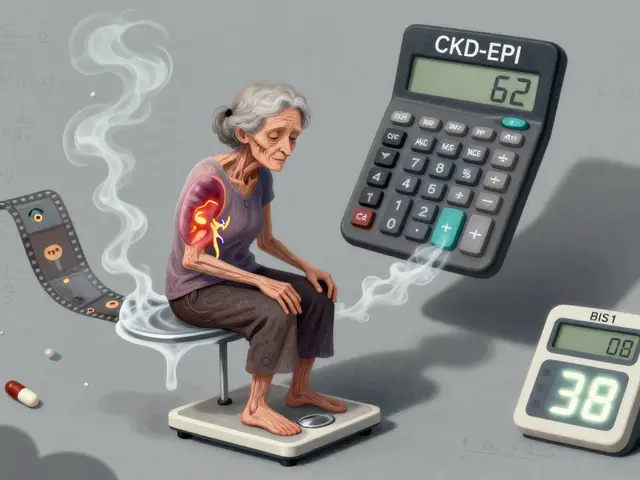Respiratory Health — Practical Tips for Breathing Better
Breathing well matters every day. Whether you have allergies, asthma, COPD, or you just want to avoid colds, small habits make a big difference. Below are clear, practical steps you can use now to protect your lungs and reduce flare ups.
Know your symptoms and act fast. Wheeze, chest tightness, persistent cough, or new shortness of breath are signs you should track. If you feel breathless at rest, have blue lips, fainting, or can't speak full sentences, seek emergency care. For ongoing problems, keep a symptom diary and bring it to your clinician.
Use medications the right way. Inhalers and nasal sprays work only if used correctly. For metered dose inhalers use a spacer, exhale fully, seal your lips, press and inhale slowly, then hold your breath for 10 seconds. Dry powder inhalers need a quick, deep inhalation. Nasal steroid sprays like Nasonex help allergy inflammation but need daily use and proper aim toward the outer wall of the nostril. If timing or dosing confuses you, ask your pharmacist or watch a clinic demo.
Prevent infections. Get yearly flu shots, keep up to date with COVID vaccines, and discuss pneumococcal vaccines if you have chronic lung disease. Good hand hygiene, staying home when sick, and avoiding crowded places during peak season cut your risk.
Improve your home air. Avoid indoor smoking entirely. Use an air purifier with HEPA filter if you have allergies or asthma. Keep humidity between 40 and 50 percent to reduce dust mites and mold. Use exhaust fans when cooking and avoid strong sprays or fumes that can trigger coughing.
Lifestyle changes help your lungs. Walk 20–30 minutes most days to boost breathing muscles. Losing extra weight reduces breathlessness. Practice breathing exercises like pursed lip breathing during shortness of breath episodes. Pulmonary rehab programs teach these techniques and are worth asking about for COPD.
Be careful with supplements and online pharmacies. Some supplements, like herbal khella, claim to support respiratory function but evidence is limited and quality varies. If you order meds online, choose reputable pharmacies and verify prescriptions — our guides on buying Nasonex online and safe Canadian pharmacies can help.
When to see your doctor. Regular checkups matter for chronic conditions. If your rescue inhaler works less often, you have frequent night symptoms, or new daily cough appears, book a visit. Ask about controller medication options, alternatives to Breo Ellipta if needed, and whether a spirometry test is due.
Read more practical guides on our site: "How to Buy Nasonex Online Safely," "Best Breo Ellipta Alternatives," and "GSK Announces Major Price Cuts for Advair..." These address treatment choices, safe buying, and cost changes that affect access.
Small, consistent steps produce real gains in breathing, so pick one tip and start today.
If you smoke, quitting is the single best thing you can do for lung health. Ask your clinician about stop-smoking programs, nicotine replacement, or prescription aids - support increases your chance to quit for good. Start now.
Exploring the Connection Between Chronic Hepatitis C and Respiratory Health
Chronic Hepatitis C, primarily known as a liver disease, also impacts other parts of the body including the respiratory system. Understanding the relationship between this viral infection and certain respiratory conditions is crucial for patients and healthcare providers. This article delves into how Hepatitis C can affect lung health, examines related complications, and offers guidance for managing symptoms and improving quality of life. Awareness and proactive management strategies play key roles in mitigating respiratory issues associated with chronic Hepatitis C.






